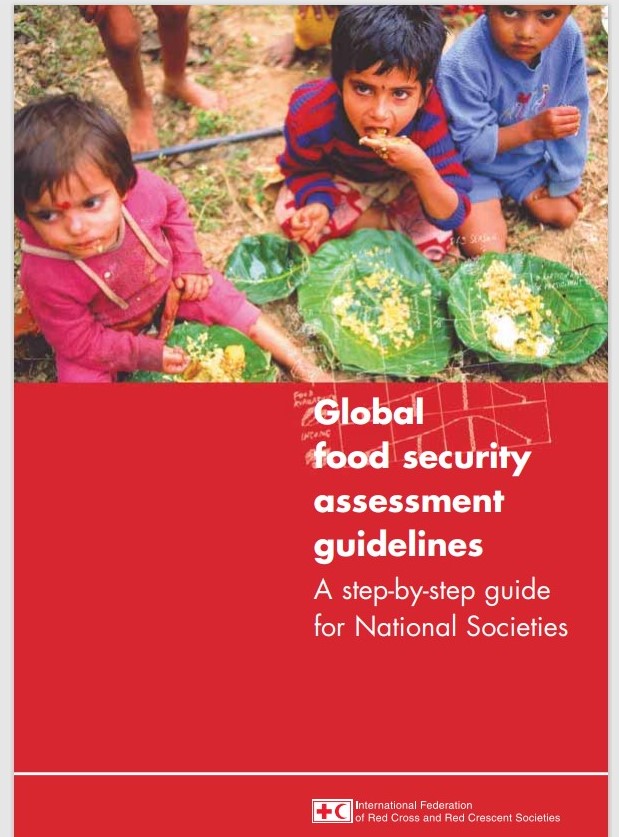IFRC Global Food Security Assessment Guidelines: A step-by-step guide for National Societies - Livelihoods Centre
Asset Publisher
This guide aims to assist National Society (NS) staff and volunteers in undertaking food security assessments. The guide, valid for both rural and urban settings, covers the different stages of a food security assessment and offers techniques and examples for carrying out such an assessment. It does not require prior knowledge or experience of food security.
A food security assessment may become necessary when conditions in a country, region, or local area change, leading to increased vulnerability within communities. As a result, people may no longer be able to meet their nutritional needs. This can be due to either a sudden onset hazard, or a slow but consistent deterioration in the local situation. A number of factors may trigger food insecurity, such as drought, floods, landslides, locust infestations, outbreaks of conflict, influx of refugees or internally displaced people (IDPs), and pandemics.
IFRC Global Food Security Assessment Guidelines: A step-by-step guide for NS

- Organization: International Federation of Red Cross and Red Crescent Societies (IFRC)
- Pages: 90
- Year of publication: 2007
- Copyright: IFRC


